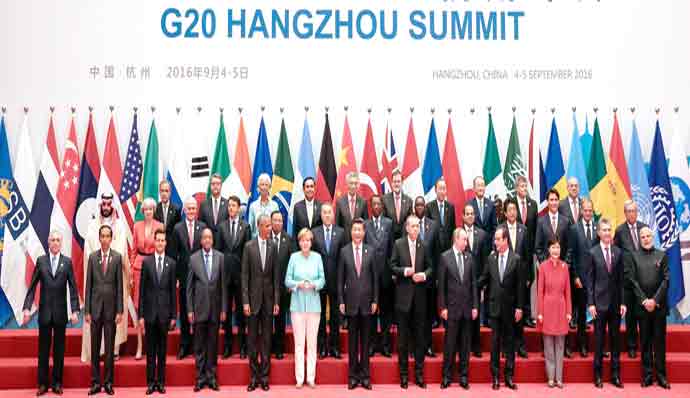G20 has officially ended; it was held in Hangzhou and inaugurated by the Chinese President Xi Jinping in the presence of business leaders and officials from around the world. Cooperation, development and reformation were the main outcomes of G20.
The summit was attended by over than 1100 businessmen to discuss the main problems that face the world’s economy.
G20 released a report of recommendations concerning G20 2016 policies. The report will be submitted to G20 members during their current meeting; it includes a set of suggestions such as plans to develop the World E-trade Platform initiative, smart innovations to encourage entrepreneurs initiative, and green finance and investment development.
Officials from Argentina, South Africa, Australia and Canada, in addition to IMF and Central Bank presidents, attended the summit. G20 members have stressed on the significance of exerting efforts to develop a sustainable, innovative and growing economy.
G20 members agreed to cooperate on increasing and financing projects, in addition to supporting innovations within the financial system in order to increase infrastructure investments.
Furthermore, G20 members agreed to facilitate private sector infrastructure projects and support the green finance and investment.
Over the last 2 days, G20 addressed six main topics which are basically to finance development, trade, investment, infrastructure, small and medium sized projects, employment and fighting corruption.
G20 members, who seize more than 80 per cent of the world’s trade, addressed the methods to enhance economic development and avoid any future financial crises. Also, G20 trade ministers have set a number of incentives to face trade protectionism that raised concerns lately; among these incentives are: Reducing trade costs, facilitating policies, supporting global investments, financing trade, encouraging the services sector and limiting the growing trade protectionism.
News agencies


